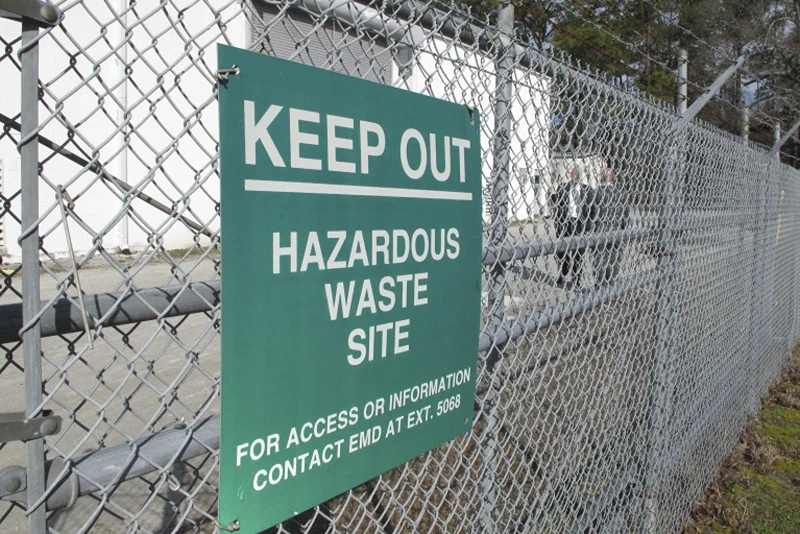
OAN’s Abril Elfi
2:29 PM – Wednesday, January 31, 2024
A new Center for Disease Control and Prevention (CDC) study revealed more cancers linked to tainted water at Camp Lejeune.
According to a new government study, individuals who lived and worked at Camp Lejeune in North Carolina in the middle of the 1970s and 1980s, both military and civilian, had a higher chance of receiving a cancer diagnosis than those who were stationed at a comparable military base in the United States during the same time.
A longer list of requirements for which veterans and civilian employees of the base may be eligible for government compensation may result from the study.
From 1953 to 1985, drinking water at Camp Lejeune was highly contaminated with several industrial chemicals that cause cancer, such as vinyl chloride, benzene, and trichloroethylene, or TCE.
Those who would drink the water, inhale steam from the shower, or even just wash their hands, which includes hundreds of thousands of Marines, Navy personnel, and civilian workers at the base, unintentionally came into contact with the cancer-causing chemicals.
According to earlier research, there was a 70% increased risk of developing Parkinson’s disease and a higher risk of dying from specific blood and organ cancers in those who were exposed to the tainted water. Concerns of infertility and birth defects have also been raised.
The new research was launched by the CDC in 2015.
David Savitz, a Brown University disease researcher who is consulting for plaintiffs’ attorneys in Camp Lejeune-related litigation, stated that the study is “quite impressive,” but that it also cannot be final proof in concluding that the tainted drinking water causes cancers.
“This is not something we’re going to be able to resolve definitively,” he said. “We are talking about exposures that happened (decades ago) that were not well documented.”
The Agency for Toxic Substances and Disease Registry (ATSDR) has reportedly done a half-dozen studies focused on the health problems at Camp Lejeune.
The ATSDR examined cancer in roughly 211,000 individuals who were stationed or employed at Camp Lejeune between 1975 and 1985 and contrasted them with approximately 224,000 individuals at Camp Pendleton in California, which was not known to have contaminated groundwater, during the same time period.
Senior epidemiologist Frank Bove oversaw the most recent study and has headed the agency’s Camp Lejeune research program. He counted on personnel at Battelle Memorial Institute and other institutions to search national cancer registries for cases associated with either base.
Richard Clapp, a Boston University emeritus public health professor who has been involved in past Camp Lejeune research, said that about 12,000 malignant cancers were discovered in each group.
However, Clapp stated that for several particular cancer types, the numbers—and the relative risks derived from those numbers—were higher in the Camp Lejeune population.
President Biden also incorporated language addressing the concerns of individuals who have experienced specific health issues that they believe are related to the water contamination at Camp Lejeune into a federal law that was signed in August 2022. The law allowed victims to make claims within a two-year period.
According to the new study, thyroid cancer might be added to the list of illnesses that Camp Lejeune staff members and their families may be suffering from.
The new study is now being submitted for publication.
Stay informed! Receive breaking news blasts directly to your inbox for free. Subscribe here. https://www.oann.com/alerts

